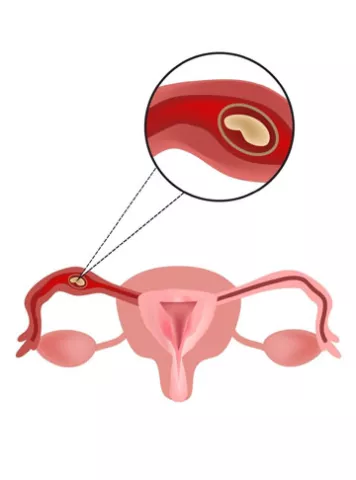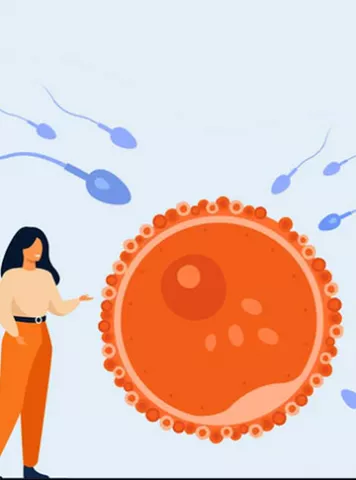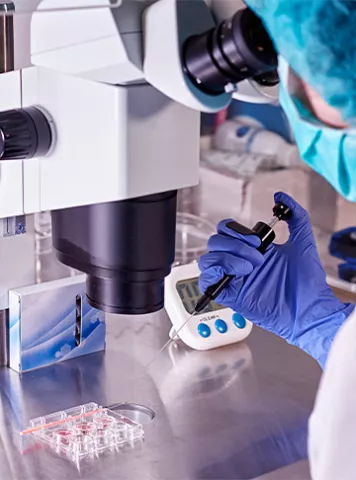The happy news of pregnancy arrives after the successful completion of the fertilization and implantation procedure. When the egg gets implanted in the uterus, a pregnancy hormone called Human Chorionic Gonadotropin hCG gets released into the body. A blood-based or urine-based pregnancy tests work by detecting the hCG levels and tell you whether you have successfully conceived or not.
Hence, it is very important that a pregnancy test after implantation is taken at a time when the hCG hormone levels are detectable. This period can differ from person to person as many factors come into the picture.
For instance, how early can pregnancy be detected depends upon whether you have conceived at the start of your ovulation period or towards the end. There is also a possibility that you may have conceived successfully, but the levels of hCG in your body have not yet risen enough, that is, you are testing too early.
Before we understand when to take the pregnancy test, let us understand what happens during and after an implantation procedure, what are the symptoms of implantation, how the hCG hormone gets released in the body and more.
What happens during and after implantation?
Fertilization of a male gamete (sperm) and a female gamete (egg) does not happen in the uterus. It occurs in the fallopian tube where the eggs are released from the ovaries. Once the sperm successfully travels to the tube and fertilizes the egg, it slides through the fallopian tube and enters the uterus through a small opening. The fertilized egg (zygote) then implants or buries itself in the mucus surface of the uterus called the endometrium.
The body reacts differently when implantation occurs and when it does not. When the egg leaves the ovaries, the corpus luteum (the shell of the egg that is retained in the ovary) starts secreting a hormone called progesterone. Due to progesterone, the uterine lining starts preparing itself to receive an egg and implant it. If this does not happen, then the level of progesterone in the body drops, the uterine lining breaks, and the female gets her period.
On the other hand, when implantation successfully happens, the zygote releases hCG. This signals not only the female about pregnancy but also the corpus luteum to keep the production of progesterone ongoing to strengthen the endometrium/uterus lining.
Post this, some women may experience post-implantation symptoms.
What are the common implantation symptoms?
We understand that every woman who is trying to become a mother will watch out for these post-implantation symptoms. But let us tell you an important thing. These implantation symptoms may not occur in all women. Sometimes, even though implantation has happened, and the embryo has started developing in the body, the pregnant woman will feel none of these symptoms. Whereas there have also been cases where these signs have turned out to be false alarms. Hence, the most reliable way is to take a pregnancy test.
Here are a few post-implantation symptoms:
- Increased body temperature
- Sore breasts
- Mild cramps
- Frequent urge to urinate
- Light spotting or bleeding
- Delayed or missed period
When to test after implantation bleeding?
One may be easily misled to think of implantation bleeding as menstrual bleeding. Here are a few differences that can be observed between period blood and implantation blood.
- The implantation bleeding can look pinkish or dark brown in contrast to the bright red colour of one’s period blood.
- Bleeding after implantation lasts for only a few hours or days and the flow is not heavy.
- While period bleeding usually starts after 14 days of ovulation (in a 28-day menstrual cycle), implantation bleeding can happen in around 10 days.
If you tick all the boxes, then you can go ahead and take a pregnancy test.
Types of pregnancy tests and how soon can you take them?
How soon can you take a pregnancy test? Is it okay to take them soon after you experience any implantation symptoms? Well, here is your answer.
The level of hCG in the body increases with time. Though a small quantity of this hormone is always present in a woman’s body, irrespective of whether she is pregnant or not, its level shoots up after implantation. It is observed that for the first 2 months of pregnancy, the hCG production doubles every two days. Hence, it is better to wait for about a week after missing your period before taking urine tests or blood tests for pregnancy.
Blood-based pregnancy test:
A blood hCG test is generally considered more reliable than a home pregnancy test. You can have a positive pregnancy test result in about 6 to 8 days after conception.
Urine-based pregnancy test:
You can also take a test at home to check hCG in your urine, generally after 10 or more days after ovulation. If you get a negative result, then it is advised to try again after a few days. In case, your pregnancy test shows a positive result, then visit a doctor and get it confirmed through a blood test.
Frequently Asked Questions (FAQs):
What are the signs of pregnancy?
Some early pregnancy symptoms include sensitivity to smell, feeling tired, nauseous, morning sickness, swelling and sensitivity around the breasts, etc.
When to take a pregnancy test after missing your period?
Rather than taking a pregnancy test on the day of your missed period, it is suggested to take it one or two weeks later. Also, if you had unprotected sexual intercourse, then it is recommended to wait for 21 days to undergo a pregnancy test.
When will the hCG level in the body start dropping?
It is noted that the hCG (pregnancy hormone) will stop rising in about 8 to 11 weeks after pregnancy.
Are post-implantation cramps very painful?
No, post-implantation cramps are not as painful as your period cramps. Also, these cramps tend to go away in a short span of time.
At Indira IVF, we provide advanced fertility treatment to treat male or female infertility factors that are hindering a successful implantation procedure. In addition to popular ART (Assisted Reproductive Technology) procedures like IVF (In Vitro Fertilization), IUI (Intrauterine Insemination), and ICSI (Intracytoplasmic Sperm Injection), etc. we also used advanced methods like LAH (Laser Assisted Hatching) for improving your chances of successful implantation and pregnancy.
Ready to start your family? Take the first step with Indira IVF. Call: 18003092323.
Articles
2023


Guide to infertility treatments IVF
एक्टोपिक प्रेगनेंसी के लक्षण, कारण और इलाज
प्रेगनेंसी की खबर महिला को का�...
2023


IVF Guide to infertility treatments
टेस्ट ट्यूब बेबी का खर्च कितना आता है (What is the test tube baby cost in hindi)
पिछले कुछ वर्षों में टेस्ट ट्�...
2023


What Causes High Estrogen in Women
Estrogen is a very important hormone in a female’s body. It is especially ne...
2022


Guide to infertility treatments IVF
थाइरायड असंतुलन के कारण हो सकती है निःसंतानता, आईवीएफ से कैसे हो सकता है।
पिछले कुछ वर्षों में थायराइड �...
2022


पुरूष निःसंतानता का एक कारण वेरिकोसिल आधुनिक तकनीकों से संभव है पिता बनना
पुरूष निःसंतानता शब्द कुछ सा�...


गर्भधारण के लिए कितनी होनी चाहिए शुक्राणुओं की संख्या
निःसंतानता एक ऐसी समस्या बनत�...
2022


आईवीएफ क्या है (IVF Kya Hai) डिटेल में जानिए, आईवीएफ में कैसे होता है गर्भधारण
समय के साथ हमारी प्राथमिकताओ�...
Pregnancy Calculator Tools for Confident and Stress-Free Pregnancy Planning
Get quick understanding of your fertility cycle and accordingly make a schedule to track it

















